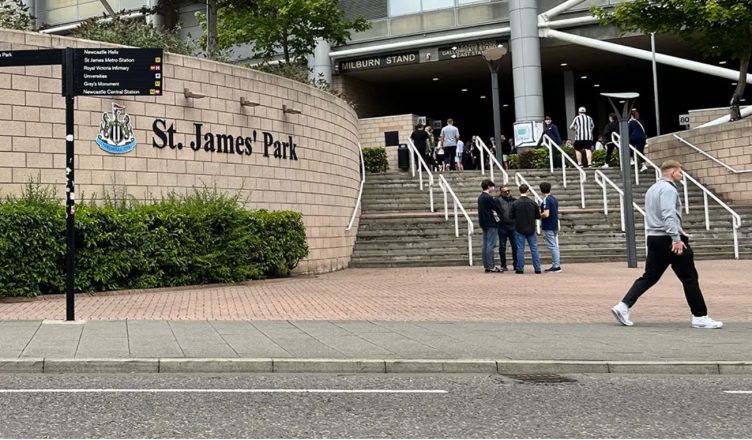Newcastle United’s Premier League history is actually one of transformation, with managers who understood exactly what this club means to supporters. From the euphoric highs of Kevin Keegan’s “Entertainers” to Eddie Howe’s methodical renaissance, certain appointments have not just changed results, they’ve rewound the club’s course and very ethos.
The Keegan Revolution: Setting the Standard
Kevin Keegan’s early spell between 1992-1997 remains the blueprint for what Newcastle United can achieve with good leadership. He did not just save the club from Second Division obscurity; he made it a genuine title contender within five years. The figures tell part of it: a 54.98% success rate and that famous 12-point buffer in 1996, which was wasted on Manchester United.
However, statistics do not show Keegan’s true influence. He banned the word “consolidation” and promised to push Alex Ferguson before a single ball was kicked in the Premier League. This was not a bluff; it was a manager who recognized that Newcastle fans are starved for ambition more than anything else. His acquisitions of Alan Shearer, Les Ferdinand, David Ginola, and Andy Cole assembled a team that mirrored the city’s passion for playing attractive football.
Keegan’s short-lived comeback in 2008 showed how ownership impacts managerial success. Although he delivered a decent mid-table performance, his conflict with Mike Ashley’s transfer committee strategy demonstrated that even great managers cannot overcome structural breakdown.
The Interrupted Excellence: Robson and Hughton
Sir Bobby Robson’s six-year residence between 1999 and 2004 exhibited the magic that occurs when tactical acumen is combined with emotional intelligence. His 46.67% win rate does not reflect his success in leading a demoralized team to Champions League regulars. Those evenings on the San Siro at Feyenoord, Juventus, and Inter Milan informed Newcastle of what they were capable of at the European level.
Chris Hughton’s story is arguably the most heart-wrenching piece in the club’s recent history. After having witnessed relegation in 2009, he piloted Newcastle to Championship success with over 100 points, a compelling performance that suggested long-term prosperity might be on the cards. His first Premier League performance in 2010-11, when the 5-1 triumph over Sunderland remains forever in his memory, rendered his eventual sacking all the more mystifying.
The correlation between managerial appointments and faith in the market testifies to Newcastle’s path. When Keegan returned in the 1990s, bookmakers significantly lowered Newcastle’s title odds, reflecting true faith that the club could compete with Arsenal and Manchester United. Similarly, Robson’s Champions League qualifications placed betting markets at Newcastle among Europe’s best.
This balance of managerial quality and marketplace expectation has completely altered. Nowadays, Bet365 sister sites offer advanced markets in anything from managerial appointments to some performance metrics. When Benitez joined in 2016, despite relegation being a risk, his reputation enhanced the chances of Newcastle achieving promotion immediately, a prediction that finally became reality.
The mood of the punters reflects that of the broader fans: there is optimism that goes up and down with managerial appointments because fans recognize that the right manager might salvage this club.
Benitez: Quality Amid Chaos
Rafa Benitez’s three-year tenure is a wonderful illustration of how excellent managers are able to achieve things in spite of underlying limitations. His 41.67% win ratio fails to reflect a manager who took/promoted Newcastle straight out of the Championship and then kept Newcastle stable in the Premier League on limited spending.
Benitez understood Newcastle’s unique pressures and demands. His insistence on staying despite relegation came as a surprise to many but demonstrated the emotional stake that quality managers feel with this fan base. But his eventual departure indicated the ongoing conflict between managerial ambition and ownership limitations.
Howe’s Renaissance: Calculated Excellence
Eddie Howe’s 2021 appointment was used to usher in a new age for Newcastle’s managerial evolution. With a current win percentage of 49.2%, overtaking Sir Bobby Robson, Howe has combined Keegan’s familiarity with the club’s identity with modern tactical sophistication.
The progress has been phenomenal: from relegation candidates to Champions League qualification and Carabao Cup finals within two years. Howe’s methodical approach of team construction, tactical flexibility, and conditioning focus has created consistent progress rather than the boom-and-bust patterns that have characterized a lot of the past decade at Newcastle.
What sets Howe apart is his ability to balance fan hope and realistic improvement. He’s won classic games against Manchester City, Manchester United, and PSG and built a team that’s capable of competing on multiple fronts.
The Common Thread
Whether it’s Keegan’s enthusiasm, Robson’s sagacity, Hughton’s forbearance, Benitez’s tactical acumen, or Howe’s methodical approach, Newcastle’s successful bosses all have one essential characteristic in common: they realize that this is not simply a job. The greatest hires have always been people who comprehend the emotional depth of managing Newcastle United and utilize it as inspiration instead of a burden.
As Howe constructs that sacred grail of a trophy win since 1955, he’s building off blueprints created by the generations that preceded him, but with the money and stability they could never afford. That dynamic might ultimately achieve the success this fan base has so patiently waited for.





